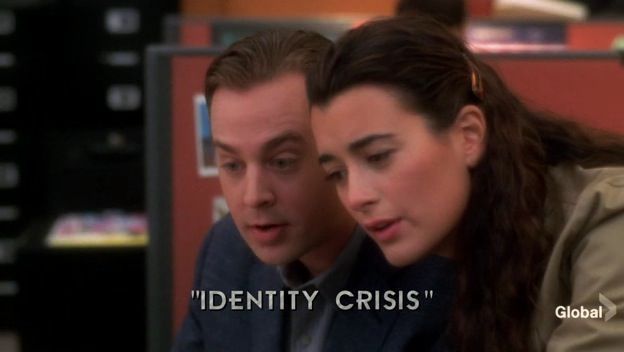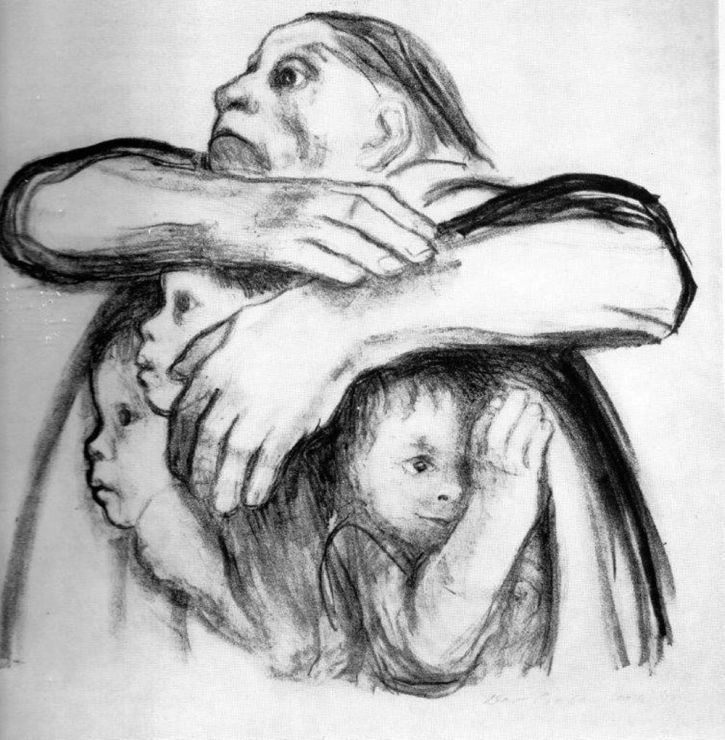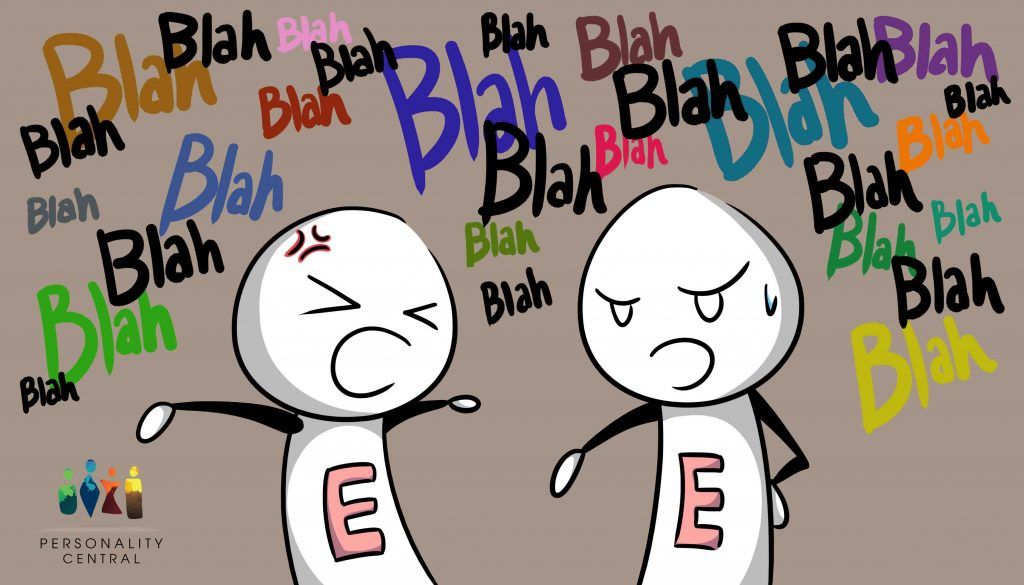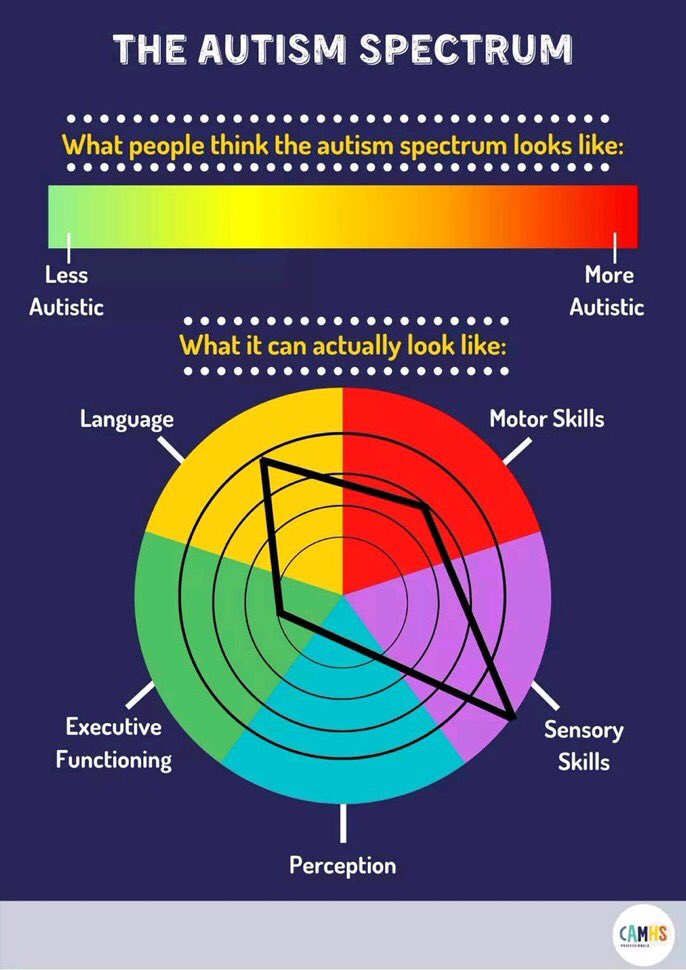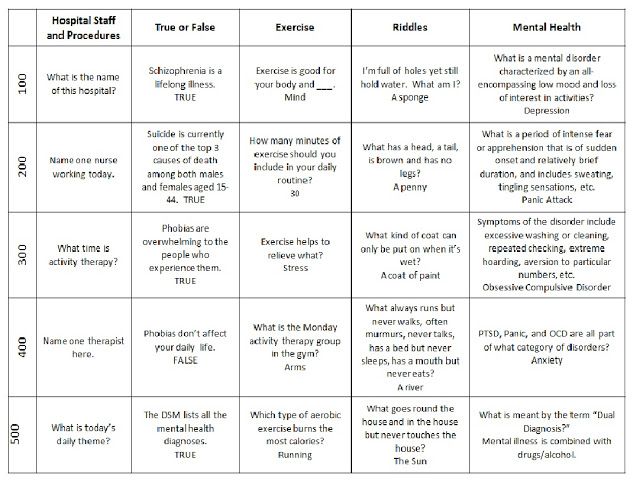Identity crisis in teenage years
Causes, Problems, And Common Behaviors
by Josh Watson, LCSW
While there are a variety of ways that teens experience identity formation, some experiences can become very harmful to the individual. In the sections below, we discuss the causes and more serious issues in teenage identity issues & development and how parents can help.
Common Causes Contributing to Unhealthy Teen Identity DevelopmentThe importance of identity development for teens is huge. When a teen is developing their identity they are learning what makes them unique while also feeling the need to fit in. For teens who feel excluded from others due to their cultural, ethnic, gender, or sexual identity, this process can lead teens to begin participating in harmful behavior. Other factors that prevent the formation of a secure and positive self-identity include:
- Lack of attachment to parents
- Low self-esteem
- Absence or negative influence of adults
- Lack of acceptance in a positive peer group
The causes above make a teen more likely to engage in risky behaviors such as drugs, substance addiction, and promiscuity. These teens are also more likely to perform poorly in school, have low self-esteem, and to act compulsively. This is due to the fact that during this time teens are still developing cognitively which makes their thinking process more impulsive than adults. Therefore, the simple encouragement from peers can be enough to persuade a teen to engage in risky behavior without much thought. The result of a teen’s participation in rebellious or promiscuous behavior can result in the teen feeling even worse about themselves and can create a downward spiral of unhealthy patterns and behavior.
15 Warning Signs of Teenage Identity Issues:
- A distorted or unrealistic perception of oneself
- Lack of congruent behaviors and values in different settings
- Self-worth relies on the opinions of others
- Poor academic performance or failure.
- Promiscuous behavior
- Low self-esteem
- Putting down others (i.e., teasing, name-calling, or gossiping)
- Dramatic or out of context behaviors
- Glances around to monitor others
- Putting self down
- Keeps his or her own views or opinions to self
- Intense emotions of anger or sadness
- Change in peers and/or avoids positive friendships
- Disregarding rules and limits
- Use of illegal substances
If your teen displays several of the above behaviors, they are likely struggling to form their identity. The next step parents can take to encourage healthier patterns is to ensure their teen is getting the support he or she needs at home.
The next step parents can take to encourage healthier patterns is to ensure their teen is getting the support he or she needs at home.
References:
- Conceiving or Misconceiving the Self: Issues in Adolescent Self-Esteem
- Identity and the Life Cycle by Erik Erickson
- Identity Development: Adolescence Through Adulthood
About Aspiro Adventure
Play Video about motivating teens and young adults | Aspiro Adventure Therapy Program
Aspiro’s Wilderness Adventure Therapy program was uniquely crafted to assist at-risk youth and their families in creating lasting, life-long emotional changes through compassionate, intentional, research-backed, and safe outdoor adventure therapy programs. The professionals at Aspiro Adventure understand individuals don’t come with instructions, and every student is unique, capable, and amazing in their own right. Aspiro Adventure focuses on helping adolescents, young adults, and their families through difficulties that occur when various behavioral, cognitive, or developmental issues are present. Research shows that engaging individuals on a personal level with strategic and intentional activities will aid in developing the tools and skills necessary to engage life in a healthy and positive way.
Research shows that engaging individuals on a personal level with strategic and intentional activities will aid in developing the tools and skills necessary to engage life in a healthy and positive way.
Why Is Teen Identity Development Important?
by Josh Watson, LCSW
The importance of identity development for teens is huge. The development of a confident and stable sense of self is one of the key tasks of being a teenager. The teenage years are usually the first time an individual begins thinking about how their identity may affect their future and their life. This results in many teens becoming extremely self-conscious about themselves and the way others see them and can result in a self-discovery and experimental stage.
Some teens are able to learn to develop and discover their identity in a healthy and age-appropriate way.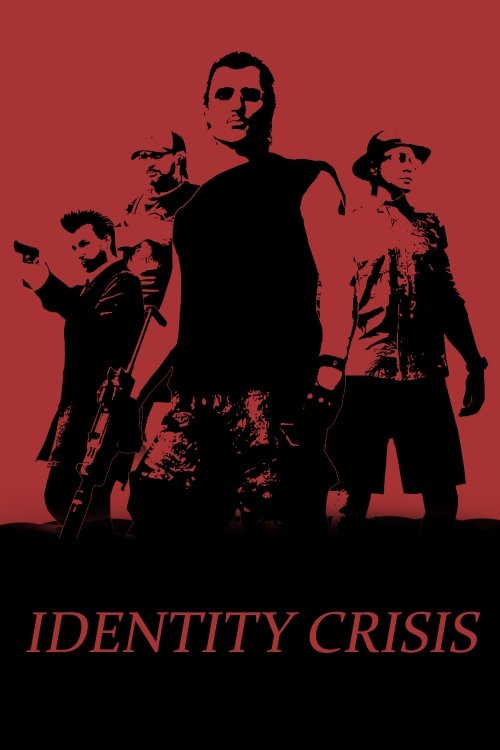 However, for other teens, the time of identity formation results in participation in risky and promiscuous behaviors that could potentially have a negative and lasting effect on their lives.
However, for other teens, the time of identity formation results in participation in risky and promiscuous behaviors that could potentially have a negative and lasting effect on their lives.
Participation in harmful and inappropriate behavior can be very concerning for parents of troubled teens. However, it’s important for parents of troubled teens to remember that all teens can become healthy and happy once again with proper treatment. A credible adventure therapy program teaches teens healthy patterns of thought and action that can replace harmful and risky behaviors with positive and healthy attitudes, relationships, and a greater sense of self.
Table of Contents
What is Teen Identity Development?Identity refers to one’s sense of as an individual and how they define themselves in terms of values, beliefs, and role in the world. Self-identity in adolescence forms the basis of our self-esteem later in life. A teen’s identity is the result of various internal and external factors. Though a teen has some control over their identity development, teen identities are also formed by environmental forces outside of their control: peers, family, school, ethnic identity, and other social environments. A developmental psychologist, James Marcia, advocates that teen identity development occurs in response to crises in domains such as school, relationships, and values.
Though a teen has some control over their identity development, teen identities are also formed by environmental forces outside of their control: peers, family, school, ethnic identity, and other social environments. A developmental psychologist, James Marcia, advocates that teen identity development occurs in response to crises in domains such as school, relationships, and values.
Teen identity develops as teens try out different roles and attitudes in different settings, such as home, school, and social atmospheres which allows teens the opportunity to explore their own values, belief systems, personal ethics, spirituality, sexuality, and gender.
Play Video
Why is Teen Identity Development Important?
Identity formation in teens is about developing a strong sense of self, personality, connection to others and individuality. Therefore, a positive teen self-identity is vital because it shapes a teen’s perception of belonging not just for their teen years but for most of their adult life. In addition, a positive self-identity is correlated with higher self-esteem. Positive reinforcements of effort, good choices, and perseverance from parents can help adolescents develop a strong sense of self.
In addition, a positive self-identity is correlated with higher self-esteem. Positive reinforcements of effort, good choices, and perseverance from parents can help adolescents develop a strong sense of self.
Erik Erikson, a psychologist, argues that if a teen does not establish what their personal beliefs and values are then they will have an identity crisis. Erikson believes identity development is a key process for teens and that a failure to establish identity leads to role confusion and a weak sense of self later in life.
Play Video
5 Common Ways Troubled Teens Display Their Self- Identity Issues
As a way to navigate the stress and confusion that comes with identity development some teens, turn to outside signs and symbols to help them define their identity. Les Parrott, Ph.D., a professor of psychology, developed the five most common ways in which teens demonstrate their struggles with identity.
Examples of Identity Issues
The 5 most common ways teens display issues with self-identity include:
- Seeking Status Symbols: Includes clothing and possessions to create a sense of positive affiliation
- Forbidden “Grown-up” Behaviors: Some teens believe that appearing mature will bring acceptance, so they begin engaging behaviors such as smoking, drinking, drugs, and sexual activity.

- Rebellion: Many teens use rebellion as a way to show that they are different from their parents and to be accepted by their peers.
- Idols: Some teens may identify with a famous person and as a result, try to become like that person. As a result, they lose hold of their own identity.
- Cliques: Teens who are forming their identity will often form cliques because they do not want to be associated with anyone with undesirable characteristics.
Again, there are a variety of ways that teens experience identity formation, some experiences being more harmful than others. In the sections below, we discuss the more serious issues in teen identity development and how parents can help.
How Parents Can Help Their Teenager Form a Positive Self-Identity
Parents are very important in terms of teen identity development. Teens with close relationships with their parents have lower rates of experimentation with drugs and risky sexual behaviors (Teen Connection, Mental Health, and Youth, PBS). For your teen, the process of teen identity development can be a stressful time and can lead to one feeling overwhelmed and unsure. Providing your child with a caring and accepting adult influence, whether you are a parent, relative, or teacher, is critical in securing a healthy identity development. Simply spending time with your troubled teen is one of the most important roles you can play in their life. The consistent and caring influence and presence of adults in an adolescent’s life is one of the best ways to ensure a seamless transition to adulthood.
For your teen, the process of teen identity development can be a stressful time and can lead to one feeling overwhelmed and unsure. Providing your child with a caring and accepting adult influence, whether you are a parent, relative, or teacher, is critical in securing a healthy identity development. Simply spending time with your troubled teen is one of the most important roles you can play in their life. The consistent and caring influence and presence of adults in an adolescent’s life is one of the best ways to ensure a seamless transition to adulthood.
Parents can help their troubled teen develop a positive self-identity in the following ways:
- Model healthy lifestyle habits and skills to manage stress
- Teach healthy ways to handle life disappointments
- Avoid making comparisons between your teen and others
- Give your teen compliments or positive reinforcement
- Encourage and promote healthy sleep habits for your teen
- Hold boundaries with your child while communicating love for them as a person
When parents have exhausted the above methods and still continues to see their teen struggle to form their identity, it may be time to seek professional help. One of the best treatment options in helping struggling teens develop a positive self-identity is through a credible adventure therapy program. Adventure recreation has a long history as an intervention used to promote positive change in promoting healthy identity development in teens.
One of the best treatment options in helping struggling teens develop a positive self-identity is through a credible adventure therapy program. Adventure recreation has a long history as an intervention used to promote positive change in promoting healthy identity development in teens.
How Can a Wilderness Program For Teens Help Your Family?
Though it can be hard for parents to let go and acknowledge their teen needs external help, a credible adventure therapy program can relatively quickly and positively change your son or daughter’s life for the better. Psychologist Erik Erikson advocated that teen identity development is fostered by experiences that allow individuals to express their individuality and receive feedback and validation from others.
Adventure therapy programs provide experiences that promote healthier relationships and positive identity formation in teens. A credible adventure therapy program can also positively affect a teen’s self-perception, confidence, and leadership skills by providing unique experiences and challenging opportunities that develop competence and confidence from within.
Wilderness Therapy Promotes Healthy Teen Relationships
The activities of a wilderness therapy program include unique experiences such as rappelling, rock climbing, and mountain biking. These experiences provide a novel and prime opportunity for teens to develop their identity and learn how to relate to others in a healthy and positive way. Research shows the scope of adventure activities led individuals to drop their social facades and allow teens to become more open to self-reflection and feedback from others (Taniguchi, 2004). Furthermore, a credible adventure therapy program allows troubled teens with a unique opportunity to develop meaningful friendships with peers and adult therapists because many of the activities require participants to work together in teams in order to succeed.
Wilderness Therapy Promotes Confidence in Teens
Adventure therapy also promotes confidence in teens. When a teen participates in a challenging activity, they see they can overcome obstacles and activities that seem difficult at the start, such as rock-climbing, hiking, or backpacking. Pushing past a physical boundary can increase the youth’s self-esteem and teach them they can do hard things.
Pushing past a physical boundary can increase the youth’s self-esteem and teach them they can do hard things.
In learning that they can overcome difficult odds, their perceptions of themselves and their personal abilities are improved. They can take pride in who they are and what they can accomplish. While engaging in these various physical activities, the trained staff give them positive verbal encouragement and feedback which also helps to increase their personal efficacy. Processing experiences during and after activities with therapists help teens internalize the experiences they are having and relate them to their sense of self.
Wilderness Therapy Promotes Positive Identity Formation in Teens
Research shows that providing teens with opportunities for self-expression, feedback from others, new experiences, skill acquisition, and self-reflection can help facilitate positive identity development in teens (Duerden, Mat. Widmer, Mark. “Adventures in Identity Development: The Impact of Adventure Recreation on Adolescent Identity Development, 2009). A credible adventure therapy accomplishes this through organized adventure activities that challenge the individual just enough to promote positive identity development. Within this spectrum of organized activities, a credible adventure therapy program teaches teens how to overcome challenges and develop a sense of competence, both of which promote identity development in teens.
A credible adventure therapy accomplishes this through organized adventure activities that challenge the individual just enough to promote positive identity development. Within this spectrum of organized activities, a credible adventure therapy program teaches teens how to overcome challenges and develop a sense of competence, both of which promote identity development in teens.
Additionally, the recreational activities in an adventure therapy program, such as hiking or biking, can play a critical development role for teens because it provides a context to participate in a challenging activity that will positively contribute to identity development and self-confidence. Along the way, a credible adventure therapy program will provide the teen with experienced and caring therapists to provide helpful tools and feedback that can positively impact their identity development.
ConclusionThe process of forming an identity is a critical task of adolescence. Teen identity formation involves one learning how they want to express themselves and their personality in their own unique way.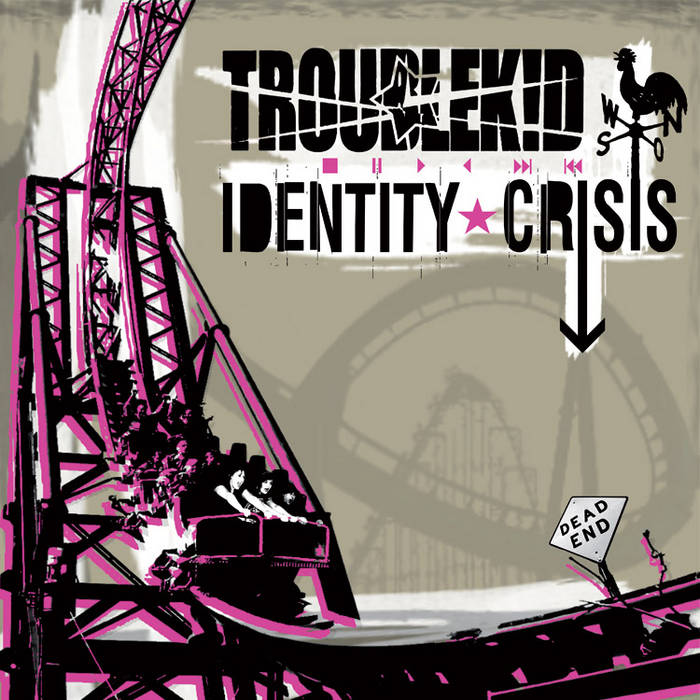 This process can lead to some teens making choices that disappoint the expectations of some of your family or friends. Parents of troubled teens should ensure they are providing their teen with love, support, and healthy boundaries that promote healthy development.
This process can lead to some teens making choices that disappoint the expectations of some of your family or friends. Parents of troubled teens should ensure they are providing their teen with love, support, and healthy boundaries that promote healthy development.
However, when the choices your teen makes become harmful to themselves or others, it may be time to seek external help. A growing body of findings suggests that the organized activities a credible adventure therapy program offers can provide teens with lasting benefits in establishing healthier patterns and can assist teens in positive identity formation. With proper help, your teen can become their best self and feel content and confident in their own skin.
To learn more about why teen identity is important, download our FREE white paper today by following the link below.
About Aspiro Adventure Therapy Program
Play Video
Aspiro’s Wilderness Adventure Therapy program was uniquely crafted to assist students and their families in creating lasting, life-long emotional changes through compassionate, intentional, research backed, and safe outdoor adventure therapy programs. The professionals at Aspiro Adventure understand individuals don’t come with instructions, and every student is unique, capable, and amazing in their own right.
The professionals at Aspiro Adventure understand individuals don’t come with instructions, and every student is unique, capable, and amazing in their own right.
At Aspiro Adventure, we focus on helping adolescents, young adults, and their families through difficulties that occur when various emotional, behavioral, cognitive, or developmental issues are present. Research shows that engaging individuals on a personal level with strategic and intentional activities will aid in developing the tools and skills necessary to engage life in a healthy and positive way.
References & Resources
- How Teenagers Find Themselves by Scientific American
- The Importance of a Child’s Social Identity
- Adolescent Identity Development and Distress in a Clinical Sample, Rachel E. Wiley, and Steven L. Berman
- Identity Development during Adolescence, Jane Kroger
- Organized activities as contexts of development (pp. 185–210. Mahwah, NJ: Lawrence Erlbaum.

- Patterns of Interaction in Family Relationships and the Development of Identity Exploration in Adolescence, Harold D. Grotevant and Catherine R. Cooper
- Erikson, E. H. (1959). Identity and the life cycle. In G. S. Klein (Ed.), Psychological issues (pp.18–171). New York: International Universities Press.
- The Role of Communication Technology in Adolescent Relationships and Identity Development. Betty-Ann Cyr • Steven L. Berman Megan L. Smith, 2014
- Haggard, L., & Williams, D. (1991). Self-identity benefits of leisure activities. In B. Driver, P. Duerden, Mat D., Widmer, Mark A., Taniguchi, Stacy T. and McCoy, J. Kelly. Adventures in Identity Development.
- Your Teen’s Search for Identity By Amy Bellows
- Anderson-Hanley, C. M., & Ellis, M. V. (1996). Enhancing identity development: Efficacy of outward bound-type program interventions. Unpublished doctoral dissertation, The University at Albany, NY.
About the Author
-
Josh Watson, LCSW
CMO
main features, phases, advice to parents of adolescent children
Adolescence crisis is a period in which a person experiences a hormonal failure due to the transition from childhood to adolescence. It usually begins at the age of 13-14 and is accompanied by disobedience, depression and increased emotionality.
It usually begins at the age of 13-14 and is accompanied by disobedience, depression and increased emotionality.
Developmental psychology has more than eight crisis periods in a person's life. Teenage is the longest and most difficult of them. At this time, the human body physically changes, it goes into the stage of puberty, which leads to hormonal failure.
For girls, this period usually begins with the onset of menstruation (11-13 years). For boys, the spread is larger - from 11 to 15 years. A growing person begins to understand that childhood is over, but he still cannot feel himself a full-fledged adult personality. Due to indefinite self-identification and excessive emotionality, a teenager for the first time goes into introspection, which leads to disobedience, rebellion and aggression towards himself and others.
Causes of the adolescent crisis
The main reason for this crisis is the problem of defining oneself in the world. Even if a child lives in a happy and loving family, feels supported, a crisis is inevitable because of the society in which he exists. It can be caused by:
Even if a child lives in a happy and loving family, feels supported, a crisis is inevitable because of the society in which he exists. It can be caused by:
- lack of attention from the opposite sex;
- excessive parental control;
- difficulties at school;
- lack of independence;
- unfulfilled desires.
As soon as a child approaches the age of puberty, parents should be on the lookout and give proper support to the confused individual. How to understand that a teenager has problems? The main features are:
- Depression . A teenager walks gloomy all day long, he develops apathy, communication with peers is less interesting to him. Girls begin to be more hysterical and tearful, boys become self-contained.
- Mutilation attempts . Depression entails a desire to cause physical harm to oneself. Most teenagers in a crisis period cripple their hands or bruise them. This is a cry for help.
 Such actions do not mean that your child has mental disorders, they mean that he does not have enough strength to cope with the difficulties on his own.
Such actions do not mean that your child has mental disorders, they mean that he does not have enough strength to cope with the difficulties on his own. - Disobedience . What the child used to consider his duty (good grades, cleaning the house, going on vacation to his grandmother) now causes a negative reaction in him. He refuses to do any assignments, reproaches his parents for worrying about him, enters into conflicts with peers.
- Closed . The requirement not to enter his room, not to touch things, not to rearrange or clean anything on his territory without personal presence. This is a way to designate his personal space and the fact that he no longer intends to allow even his parents to him.
Tips for parents: how to help your child get through adolescence crisis smoothly?
In a crisis period, a teenager has the most pronounced need for independent actions and decisions. There are severe restrictions on freedom on the part of parents - there is a rebellion. This does not mean that you need to let your teenager go out all night, goof off or bring bad grades. This means that you need to find a way.
This does not mean that you need to let your teenager go out all night, goof off or bring bad grades. This means that you need to find a way.
Before giving more rights to a child, you need to become his friend and support. This must be instilled from childhood, otherwise the level of mutual understanding in adolescence will fall below nowhere. Show interest in his problems. Talk to him about puberty without hesitation and red cheeks. Consult with him before making any important decision for your family.
By adolescence, you should already have strong friendships. This is important, because in an atmosphere of trust and mutual respect, it is much easier for a person to share his inner feelings, to talk about his "jambs" without fear of being misunderstood or punished. Listen to him, share with him memories of your youthful problems, give unobtrusive advice and just be there in a difficult moment.
Adolescent crisis in girls and boys
Article content
- Physiological causes
- Psychology of the Teenage Crisis
- Phases of a Teenage Crisis
- Manifestations in adolescence
- Features of the course in girls and boys
- Advice for parents on coping with the crisis
Adolescence or pubertal crisis is a stage of mental development that develops during the transition from childhood to adulthood. It is expressed in the desire for self-affirmation, independence, independence.
It is expressed in the desire for self-affirmation, independence, independence.
According to Russian psychology, adolescence occurs at 11-17 years of age, when the pace of psychological, cognitive, social and physiological development is as high as possible. At the same time, an early period is distinguished from 10 to 14 years and a late one - from 15 to 17 years. However, the World Health Organization defines adolescence as a longer period, from 10 to 20 years of age.
In the case of successful overcoming of this stage, the child develops a new level of awareness, self-perception, develops the ability to evaluate and develop their qualities, abilities, work on shortcomings. The child is separated from the parents, but at the same time maintains a good relationship with them. In order to successfully pass the transitional age and avoid complications, parents need to be flexible, work on trusting relationships and recognize the right to independence, independent choice and making important decisions in time.
Physiological causes
Puberty is the age when the growth of the body occurs most actively. Development is in leaps and bounds. In a year, a child can grow by 7-10 centimeters and increase body weight by 5-9 kilograms. The skeleton becomes stronger, the muscles are improved. The heart muscle is rapidly growing in length and width, blood pressure and the rhythm of the heart are changing.
Along with the intensive growth of the body, the shape of the body also changes. Gender signs develop, the hormonal background changes, the endocrine system is rebuilt, the endocrine glands are activated. Moreover, puberty in girls begins earlier by 1-2 years and ends by the age of 15-16. At the age of 10-12 years, they overtake boys in growth. However, by the age of 15-16, boys are already significantly taller than girls and at the same time continue to grow until the age of 18-20.
It is very difficult for the nervous system to adapt to changes, as it simply does not have time to adapt to active growth. Therefore, often the psyche is in a state of excessive excitement or, on the contrary, tries to slow down the processes and goes into pronounced inhibition.
Therefore, often the psyche is in a state of excessive excitement or, on the contrary, tries to slow down the processes and goes into pronounced inhibition.
Due to all physiological changes, temporary disturbances develop in the child's body:
- jumps in blood pressure - hypertension is often observed, but hypotension is also a variant of the norm;
- dizziness, headaches;
- poor concentration, distracted attention;
- palpitations (tachycardia), a feeling of constriction in the region of the heart;
- dyspnea;
- fainting states;
- fast fatiguability;
- irritability, sleep disorders.
Physiological processes directly affect the health and behavior of a teenager. In order for the body to fully develop and the jump of maturation to be successful, it is necessary to provide high-quality support for the processes: proper nutrition, saturation of the diet with vitamins and microelements, adequate physical activity.
It is important to consider that there are significant individual characteristics in physical development and puberty. The age at which active changes begin in the child's body may deviate from group norms, and this should not cause concern.
Psychology of adolescence crisis
The main reason for the development of the crisis in adolescence is a significant gap between the physiological and social, emotional maturation of the individual. As we have already said, physiological growth during this period maximally outstrips the pace of development of the psyche.
Physiologically, a teenager in a short stage becomes an adult, a mature person. Outwardly, yesterday's child looks like an adult, begins to feel like that, but is not yet fully ready for independence and responsibility. Social maturation takes much longer.
As a result of this gap, conflicts arise with adults. The child wants to feel free and independent, but in fact he still cannot cope with serious responsibility. On this basis, conflicts and misunderstandings arise. The personality of a teenager changes so much that sometimes it seems that the child has simply been replaced.
On this basis, conflicts and misunderstandings arise. The personality of a teenager changes so much that sometimes it seems that the child has simply been replaced.
The pubertal period is expressed not only on the physiological, but also on the mental level. Moreover, the mental aspects of puberty can occur much earlier than physical maturation. Adolescents go through gender identification and orientation, begin to perceive themselves and others according to gender. Scientists agree that gender identification occurs to a greater extent under the influence of sociocultural factors than biological ones. The patterns and stereotypes that operate in society play a decisive role.
In the same period, romanticism develops - the desire for emotional intimacy. Teenagers form relationships that involve spending time together and having heartfelt conversations. The first love appears. In this case, physical intimacy is not mandatory, the platonic context comes to the fore, and only then the sexual one.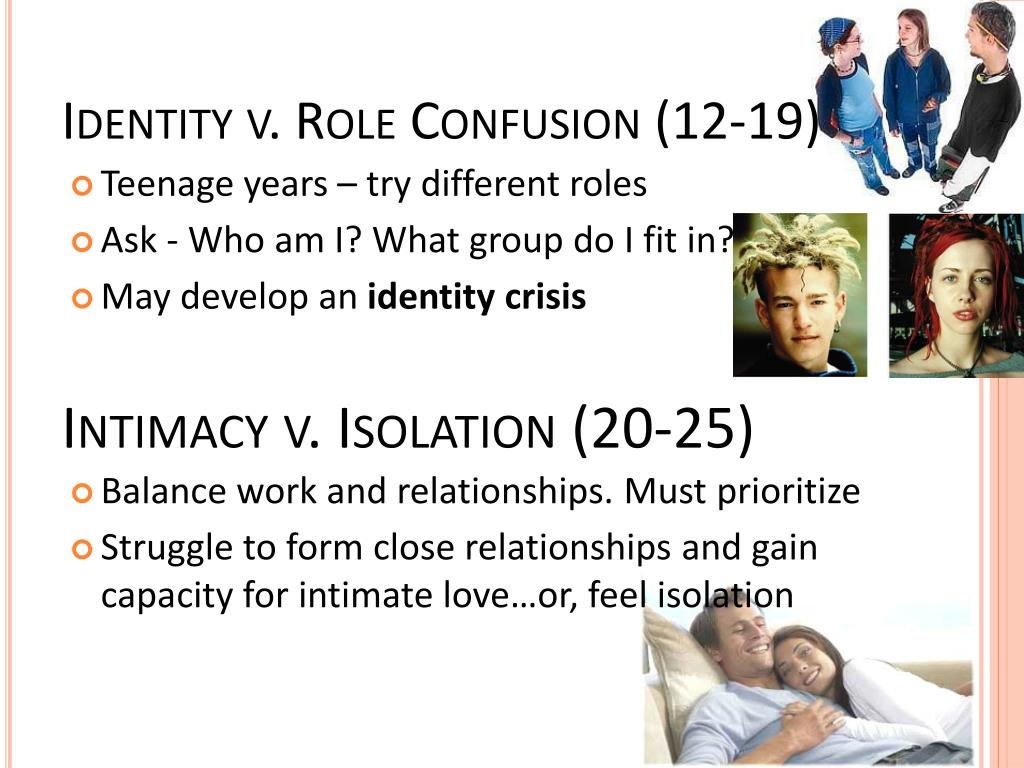
Given all the psychological changes taking place in a teenager, a crisis is necessary to solve a number of problems. As a result of successfully overcoming this developmental leap, a teenager:
- undergoes gender identification, assumes a male or female role;
- accepts his appearance with all the changes;
- changes the form of communication with others: parents, peers, etc.;
- adopts a new style of relations, turns from a child into an equal responsible member of society with mature behavior;
- develops interests, finds directions for the development of his abilities, subsequent professional orientation.
Phases of adolescence crisis
Psychologist Lev Semenovich Vygotsky identified three basic phases in the adolescent crisis:
- Negative or pre-crisis . The earliest stage, which can show the first signs as early as 9-10 years. It is characterized by the beginning of the transition to a new type of interaction with others.
 The child begins to abandon the old system of values, breaks stereotypes, changes his attitude towards himself and others. Childish relationships with parents no longer suit him, but he is not yet ready for an adult system of interaction. The child has new interests, different views, the environment begins to change.
The child begins to abandon the old system of values, breaks stereotypes, changes his attitude towards himself and others. Childish relationships with parents no longer suit him, but he is not yet ready for an adult system of interaction. The child has new interests, different views, the environment begins to change. - Direct crisis stage . Often this stage reaches a peak at 13-15 years. It can manifest itself in different ways: from maximum protest, conflict and irritability in all areas of life, to a gradual transition to new roles, relationships and self-perception. New ways of thinking develop, new opportunities and interests appear. The teenager defends his opinion and the ability to make decisions independently, is separated from parental influence, control.
- Positive, or post-crisis . It is considered the final stage of the puberty crisis. In this period, a teenager already forms values and priorities, determines the vector of further development, interests.
 Puberty is almost over, the place in society among peers is determined. A teenager strengthens the core of interests and continues to develop it in the future.
Puberty is almost over, the place in society among peers is determined. A teenager strengthens the core of interests and continues to develop it in the future.
It is impossible to say exactly how long each phase lasts. In many ways, the duration of the stages depends not only on the teenager, but also on the correct reaction of parents to the manifestations of the crisis.
Manifestations of a crisis in adolescence
The severity of the crisis can be different. At the initial stage, psychologists identify two main features that are present in almost every child:
- Decline in school performance, performance . Physiological and mental changes, a change in the type of thinking directly affect the child's learning. He does not cope well with creative tasks, loses concentration, interest in learning. Even minor criticism can discourage the desire to delve into a particular area or topic.
- Adverse reactions .
 Even the most accommodating children tend to separate from their parents, and therefore they often show quick-tempered reactions even in familiar situations. Natural manifestations of negativism are pessimistic moods, increased irritability, dissatisfaction with oneself, whims, and nervousness.
Even the most accommodating children tend to separate from their parents, and therefore they often show quick-tempered reactions even in familiar situations. Natural manifestations of negativism are pessimistic moods, increased irritability, dissatisfaction with oneself, whims, and nervousness.
As we move from one phase of the crisis to another, the manifestation of reactions also grows, which can be divided into three large groups :
- Emancipation reactions . The child wants independence, and this reaction is expressed in the avoidance of parental control, the denial of familiar values, and the withdrawal to communication with peers. The teenager demonstrates independence and autonomy, demands to recognize his equality and reckon with his opinion.
- Self-assertion reactions . It is mainly expressed in communication with peers and showing interest in the opposite sex. During this period, friends become the main authority, there is an interest in romantic relationships.
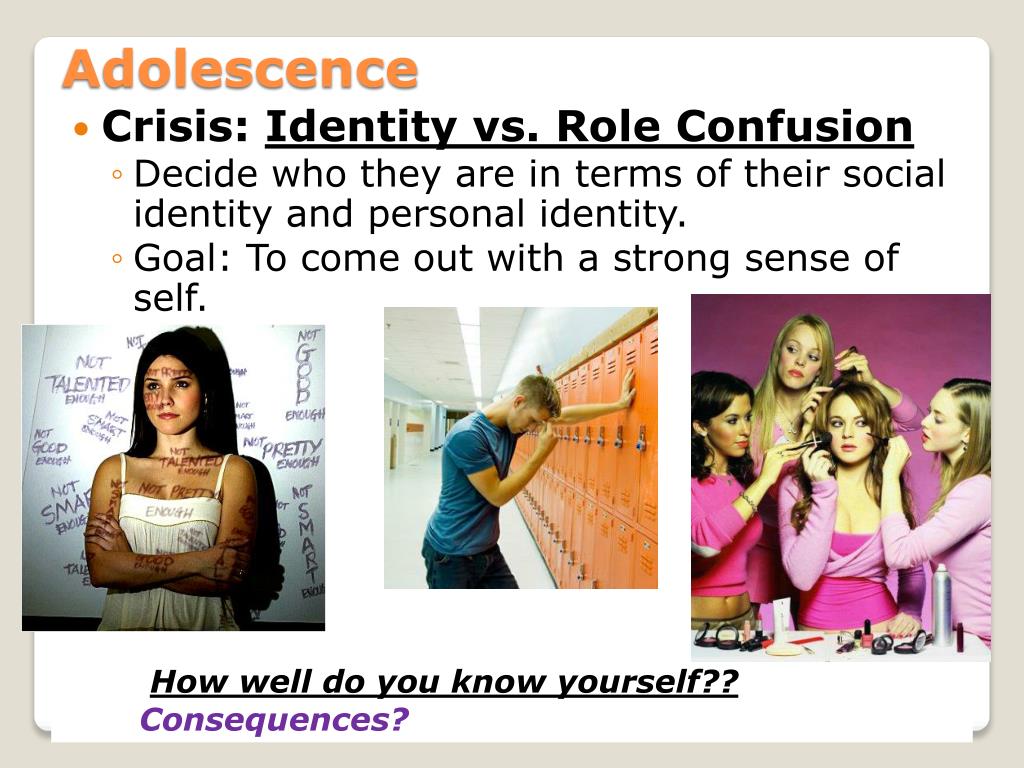
- New Interest Search Reactions . In adolescence, the interests of a teenager are scattered in many directions: searching for oneself, striving for the unknown and novelty, immersion in informative and communicative spheres. A teenager is deeply interested in any intellectual and aesthetic direction (music, cinema, philosophy, etc.), looking for bodily-manual practices (taking care of his body, increasing endurance, strength), developing leadership skills (trying to take a worthy position among peers), immersing in the information field (spends a lot of time on the Internet, social networks).
Features of the course of the crisis in girls and boys
Puberty is different for girls and boys. In girls, as a rule, the symptoms of the transition period begin to appear from 10-11 years. At the same time, the signs of a crisis are rather weakly expressed in them. Boys enter the transitional age later - from about 12-13 years old. But the course of the crisis period is much more pronounced. This is mainly due to the fact that society traditionally has stricter requirements for boys and men than for girls and women.
This is mainly due to the fact that society traditionally has stricter requirements for boys and men than for girls and women.
In adolescent boys, the following features are most pronounced:
- Aggression, anger . The manner of behavior changes in relations both with peers and with adults - parents, teachers. This is mainly due to an increase in the production of testosterone in the body.
- Sudden bursts of emotion . Mood swings, like unreasonable aggression, are due to hormonal changes.
- A dull sense of fear . Teenagers often go in for extreme sports and decide on rash acts. The reason is also a change in testosterone levels.
- Striving for independence . Boys want to be perceived as grown men. To do this, they need to solve problems on their own, which is far from always within the power of a teenager. The inability to independently cope with troubles becomes the cause of a violation of mental balance.

- Desire to lead a lifestyle inherent in adult men . Teenagers want to do high-profile deeds and even feats. However, they do not always realize the consequences of rash actions.
- Interest in intimate aspects of life . Manifested in a strong attraction to the opposite sex.
- Preoccupation with appearance . It is wrong to assume that boys are less worried about their appearance than girls. Changes in appearance make adolescents vulnerable, and dissatisfaction with their own appearance leads to isolation, insecurity, and low self-esteem. They do not tolerate criticism in their address, and any reckless comment is perceived as negatively as possible.
In girls, adolescence is accompanied by the following signs:
- Concern about appearance . Girls acutely perceive their discrepancy with the generally accepted canons of beauty.
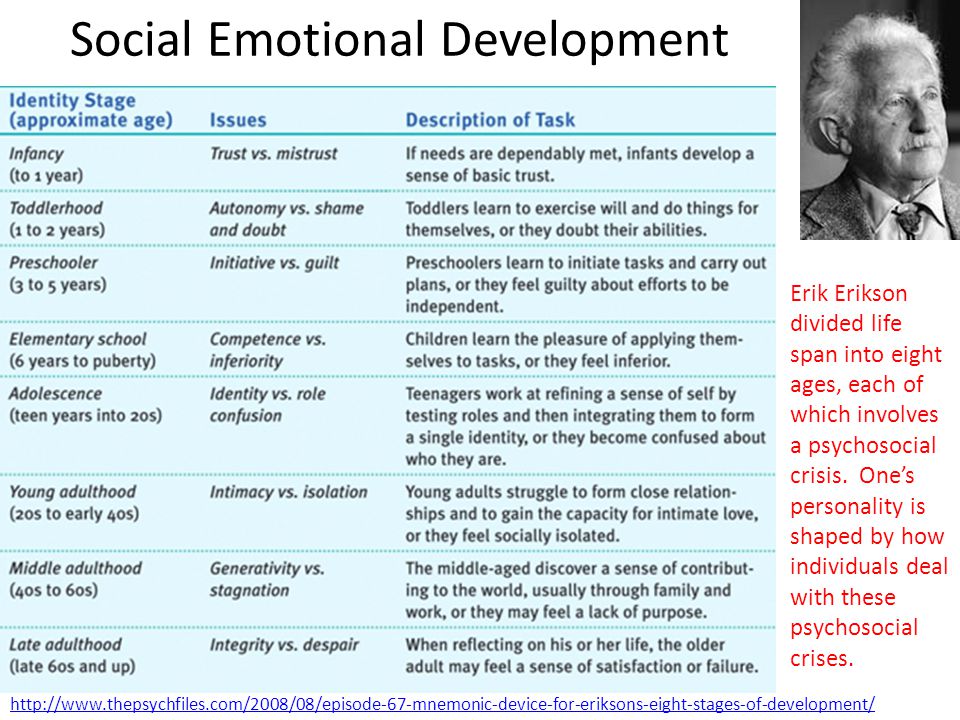 This is especially evident against the backdrop of the popularization of social networks. They want to be like beautiful girlfriends, artists, influencers. They start to follow fashion, they want to dress in trendy things.
This is especially evident against the backdrop of the popularization of social networks. They want to be like beautiful girlfriends, artists, influencers. They start to follow fashion, they want to dress in trendy things. - Desire to attract attention . Teenagers strive to show how interesting their inner world is and how unusual their views on life are. To attract attention, they use provocative behavior, dress in too catchy outfits, apply expressive makeup, dye their hair in bright colors.
- Mood swings . In girls, as in boys, hormonal surges cause mood swings, irritability, outbursts of anger and aggression.
- Interest in the opposite sex . Unlike boys, girls are more interested in platonic love. Often at this age they fall in love. If the first love turns out to be unrequited, this can lead to serious complications of the crisis - isolation, depression, suicidal tendencies.
Various distortions of manifestations depend on upbringing, environment, standards established in society.
Advice for parents on coping with the crisis
Despite the difficulties in communicating with parents and an active desire to separate, during a crisis period, a teenager needs the right support and protection from adults. At the same time, parents need to abandon the previous forms of control and give the child the necessary share of freedom.
Each child is unique, and parents will have to find an approach on their own. But a few simple recommendations will help to understand a teenager and help him overcome the crisis:
- Unobtrusively enter the environment . A friendly, calm approach will help overcome misunderstanding and aggression. Participation in life situations, common interests will allow you to unobtrusively help the child solve problems as needed.
- Interested in hobbies . It will not be superfluous to share the interests of the child, discuss his hobbies with him, talk about his thoughts and find out the point of view on various issues.

- Be patient with emotional swings . A violent reaction should not cause an explosion of emotions in response.
- Give freedom . It is important to provide the child with his own space, if possible - a private room. You should restrain your desire to control his actions, hobbies, emotions.
In conversations with a teenager, you should also adhere to a number of rules :
- Reject notations. Even small children do not like moralizing, and in a teenager they will only cause protest and aggression. After a few minutes, his attention will switch to something else.
- Do not blame, do not criticize. Any comments should be put forward in an environmentally friendly way, without accusations, moralizing and imposing.
- Discuss in passing. Teenagers are not always ready for serious face-to-face conversations.
 Increased attention to the problems of the child will make him think that his independence is doubted. But careful conversation during joint activities will bring results.
Increased attention to the problems of the child will make him think that his independence is doubted. But careful conversation during joint activities will bring results. - Do not raise your tone. Calm conversations are more effective than screams and scandals.
- Praise. Because of their insecurity, teenagers are in great need of praise and approval.
- Communicate with the child in instant messengers, social networks. Children spend a lot of time on smartphones and tablets. Correspondence in messengers is familiar to them. Communication in such an environment will allow you to conduct conversations in a way that is comfortable for the child.
Even the correct behavior on the part of parents does not exclude the possibility of manifestation of conflict, aggression and disobedience of a teenager. However, a respectful attitude towards the individual and an appropriate manner of communication between adults can reduce the severity of crisis symptoms and their intensity.